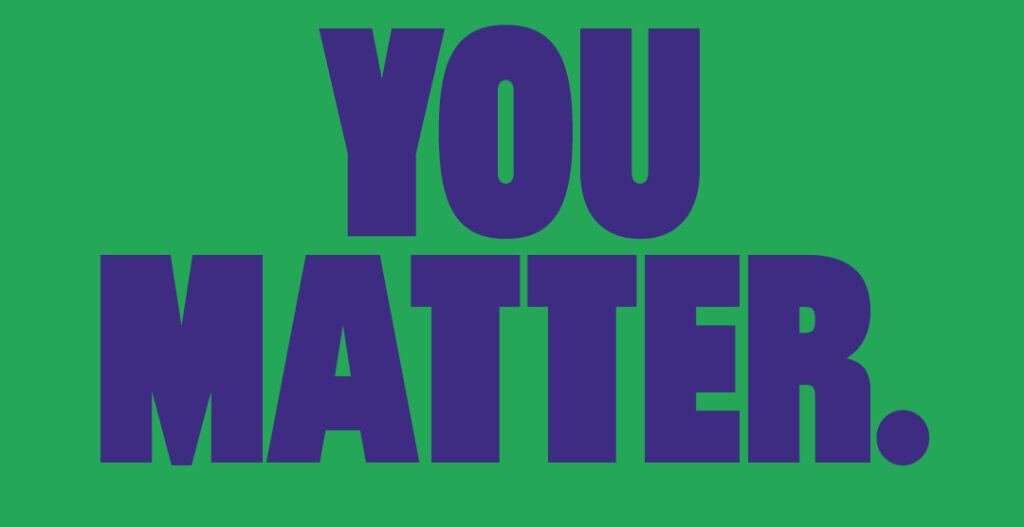This story contains details some readers may find upsetting.
Names in this story have been changed.

Bridget has spent more than 30 years as a carer for family and friends, helping to support them through times of physical and mental health crisis.
She has also struggled with her own mental health and, as part of her journey to recovery, recently signed up as an involvement member at Tees, Esk and Wear Valleys NHS Foundation Trust (TEWV) – to help others.
“Being involved in co-creating Trust services has made a huge difference to my mental wellbeing. This has not gone unnoticed by my family and friends,” she said.
Becoming a carer
Bridget, a mum-of-two and gran-of-four, enjoyed a highly successful career in corporate sales – employed across the healthcare, hospitality and education sectors.
Her life changed in 1993 however, when her then husband was diagnosed with a serious personality disorder and Bridget became his carer.
“For two years I did everything I could to support him,” she said. “But, whilst I still had feelings for him and a sense of responsibility, my priority had to be our children.
“After numerous troubling incidents, including police involvement, I made the difficult decision to leave in 1995. I didn’t want my children exposed to a toxic situation.”
Bridget became the sole provider for her family, both emotionally and financially, with her focus on ensuring a stable and nurturing environment for her children.
Further tragedy
Then tragedy struck again. Following the death of her mother – also in 1995 – Bridget took on the role of caregiver for her father, who was struggling to cope.
He was later diagnosed with early onset of Parkinson’s disease, and despite his health issues and Bridget’s own personal problems, she offered him a loving home.
Bridget went on to care for him for seven years, until his death at 88. A few years later, in 2016, her ex-husband contacted Bridget out of the blue.
“He was at the end of his tether after being terribly mentally and physically ill for several years,” she said. “I was genuinely shocked at what he had become.
“I made the decision to resign from my job and become his carer, as he wouldn’t accept the help of services and consistently refused corrective surgery.
“He was in an extremely dark place; he was in excruciating pain and had no support.”
Bridget cared for her ex-husband after neurosurgery in 2016 and a hip replacement in 2017. But, although his physical health improved, his mental health did not.
She continued to care from him through the Covid lockdowns of 2020 but, as the pandemic continued, support became much harder to access.
Two years later – in 2022 – Bridget’s brother sadly died of cancer and his grandson was diagnosed with terminal cancer at just 20. Bridget yet again stepped in to help.
At the same time, she was struggling to support her ex-husband, who refused to engage with services. Eventually, her own mental health “hit rock bottom”.
The impact on Bridget’s mental health
“I became withdrawn and isolated and was barely recognisable,” she said. “I had hit the proverbial brick wall. Overwhelmed with responsibility, I felt desperate.
“I started to feel anger and resentment towards my situation – a totally alien feeling. I felt worthless, became abstract and was unable to concentrate on almost anything.”
In April 2023 Bridget was referred to TEWV’s mental health services for older people (MHSOP), where she received support from a community mental health nurse for several months.
She also underwent psychological therapy and, after just a few weeks on a trauma-based and recovery-focussed pathway, her interest in the outside world re-kindled.
“The therapy made me realise that I had always been there to placate others, to put the needs of others first, and had neglected my own needs,” she said.
“I had considered myself to be weak, pathetic and a failure. This had manifested in my physical health further deteriorating.”
Taking the first steps
Bridget’s first step to better mental health involved taking courses focussed on trauma on the Recovery College Online – TEWV’s online educational resource, with courses and information available to anyone.
Therapy focussed on relationship patterns further aided her recovery and, by 2024, she had started to read again, joined a gym and was feeling empowered once more.
“I can only say that my experience with TEWV has been extremely positive. In my opinion I have received outstanding care from MHSOP,” said Bridget.
“I owe a big thank you to the service for the investment and commitment and for facilitating the return of myself that I had lost and imagined would never return.”
Now, Bridget is embarking on one of the final recovery goals of her staying well plan – signing up as a Trust involvement member, to help co-create future services.
She has recently become involved in TEWV’s new campaign encouraging people to get early help for their mental health.
Being part of the You Matter campaign
You Matter highlights the importance of getting help early if you are struggling with your mental health. It signposts to a range of easily accessible support including self help guides, Recovery College Online, community wellbeing hubs and support centres, mental health support in GP surgeries and Talking Therapies.
The campaign was created alongside Bridget and other people who have lived experience of mental illness, either personally or as a carer, and uses their own words throughout the campaign.
“Working within co-creation is something I am passionate about, and I feel that my own lived experience will be valuable, she said.
“It has also enabled me to have a greater understanding of mental health and become a better carer for someone with complex emotional needs.
“I am already regaining my self-respect and improving my confidence. I am focused and I have come to realise that I matter.”
Find out more about You Matter and mental health support